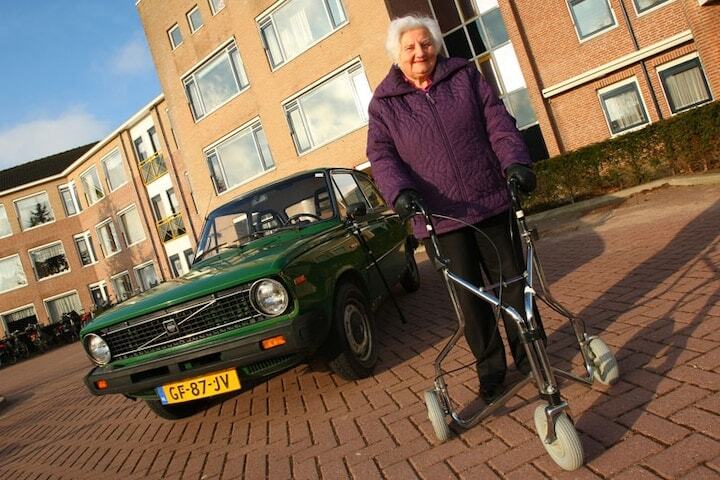1.1 million older motorists

Medical examinations for motorists aged 75 and over will become stricter from 2026. New guidelines should prevent driver’s licenses from being renewed without careful assessment. The reason is excesses in current practice, where some doctors perform dozens of examinations per day.
From January 2026, doctors who examine people aged 75 and over for their fitness to drive must take more time. An examination must now last at least 15 to 20 minutes. The CBR, the Dutch Association of Driver’s License Examination Doctors (NVVR) and the Association for Examination Doctors (VVK) are currently working on stricter guidelines. For example, motorists must bring an overview from their pharmacy with the medication they may be taking.
“The quality of the medical examinations can absolutely be improved,” says Wessel Agterhof from the CBR. “There has been regular discussion about this in recent years.” He points to stories that older people are back outside with approval after five minutes. “Wherever money can be earned, you unfortunately see differences in quality,” says Agterhof.
Parents hit
The discussion about older motorists has flared up again after a fatal accident in Hengelo. Michel Florijn’s parents were hit by an 87-year-old driver on June 12. His father Wim died, his mother Woutje was seriously injured. Florijn made an emotional plea on this site for stricter controls: “The way older people are currently being examined is a sham.” Florijn calls for a broad social debate. If someone is no longer driving safely, intervene as parents or family. “Take away the car keys, no matter how difficult that conversation is.” He finds it incomprehensible that driver’s licenses are renewed for five years. “A lot can happen in those five years. Traffic has changed. Faster electric cars have been added. Just like electric bicycles.”
Not always a 5-year extension
The CBR shows understanding for Florijn. Yet the system is really not as lax as he and critics claim. “Everyone aged 75 or older must periodically complete a health declaration and undergo a medical examination,” says spokesperson Agterhof. Extensions of the driver’s license are not always five years, as Florijn says. “Many people receive an extension of one or three years, depending on a possible condition.” He mentions the example of early-stage cataracts. “Then you can still drive fine and you get an extension for, for example, one year.”
Examining doctors
Nevertheless, the CBR remains dependent on examining doctors. They also recognize that the level of medical examinations is not always good. “Some doctors examine twenty to thirty people per day,” says Coen Itz, chairman of the VVK and also an examining doctor himself. “That has to stop. It shouldn’t be a revenue model.” According to Itz, careful examinations are essential: “I take at least half an hour for it myself. You must not only assess someone medically, but also really speak to them.” He always looks at how someone drives into the parking lot and walks in. “You often see a lot from that.” It is also important for older people, who also sometimes complain about assembly line work, which makes them not understand questions or tests properly.
1.1 million
The great pressure on the examination system does not help. “We are currently at the peak of the aging population,” says Itz. The Netherlands now has 1.1 million motorists aged 75 and over. That is more than twice as many as ten years ago. “As a result, more and more examining doctors have been added. Unfortunately, there are also cowboys and qualitatively less good doctors among them.” Itz himself has been a doctor for fifty years. He does not allow himself to be put under pressure. “But colleagues who have just received their medical degree sometimes have more difficulty disappointing family members or the elderly themselves.” New guidelines are therefore important. “They give you as a doctor something to hold on to.”
Small part rejected
The figures show that only a small proportion of older motorists are rejected. Of the nearly 95,000 examinations last year, almost 1,900 – less than 2 percent – led to a rejection. The CBR emphasizes that the debate must be conducted on the basis of facts. “You often see that the debate about the driving ability of older people flares up again after an accident, as is also the case here.” The same applies to the driving ability of young motorists.
Self-report to CBR
If family members doubt the fitness to drive of their beloved father or mother, spokesperson Agterhof advises to start the conversation. “Possibly together with the family doctor or district nurse.” If that doesn’t work, a report can also be made to the CBR. That then leads to a mandatory assessment, but that is more expensive. It is therefore better if the older person takes the initiative himself.”
The matter is not as black and white as it seems, says Agterhof. “If the family thinks that father is becoming forgetful, that does not immediately mean that he is no longer fit to drive. If you forget to take an exit, you take the next one. It only becomes dangerous if you no longer understand a traffic sign.” At the same time, doctors must always examine carefully. “That is also in their own interest and that of their family or loved ones.”